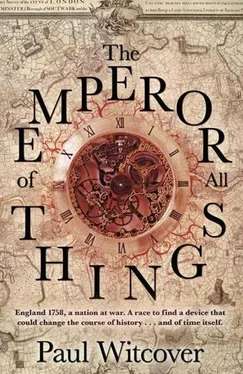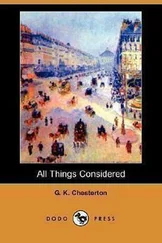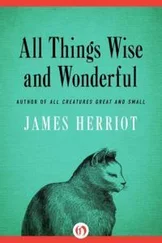‘What, for a thief, you mean?’
‘If you like. Will you help me?’
‘I did not give you the watch last night, madam, when I knew nothing of its true nature. Now, having experienced the horror of it for myself, I am even less inclined to do so. I know nothing of who you are, really, or of why you want the watch. I only know that it is too dangerous to fall into the wrong hands.’
‘Where that watch is concerned, there are no right hands,’ she said.
‘Right or wrong, I should prefer it remain in English hands.’
She frowned; for an instant he thought to feel himself pierced by her blade. But then she sighed, and her shoulders slumped. ‘I was a fool after all. To come here and expect your help. Why should you help me when you understand nothing of what is at stake?’
‘Enlighten me, then. After all, we are bound, are we not? Blood to blood?’
Her eyes flashed. ‘You would not joke if you understood what that meant. It is the watch that binds us, for it has drunk of our blood.’
‘You speak as if it were alive.’
‘It contains life and death, yet is beyond both.’
‘More obfuscation. I begin to wonder—’
A shout interrupted him. ‘Quare! Ho, Quare, old son!’
Quare turned his head and squinted through the drifting smoke towards the front of the Pig and Rooster, where four men had just entered. He recognized three of them as friends and fellow journeymen. The quartet made for him at once, calling loudly for ale.
Grimacing at the interruption, Quare turned back to Grimalkin. She was gone. He shot to his feet, searching for the blue bonnet, but there was no sign of it, or of her, amidst the patrons of the Pig and Rooster. Once again, it was as if she had vanished into thin air.
He was still standing, mouth agape, when the new arrivals reached him: Francis Farthingale, a handsome, dark-haired giant who claimed to be the illegitimate son of a European monarch – which monarch, he was never prepared to say, but his insistence upon this circumstance, plus the fact that he received a regular sum of money from a mysterious source, had earned him the nickname Prince Farthing; fat Henry Mansfield, whose round, smallpox-ravaged face always wore a baffled smile, as if the world were a perpetual wonderment to him; and Gerald Pickens, the youngest son of a master clockmaker in far-away Boston in the Colonies, who had a comfortable allowance from his father but no hope of inheriting the prosperous family shop, which would go to his elder brother. The fourth man, a slender, red-haired youth, Quare did not know.
‘You look as though you have seen a ghost,’ said Mansfield, clapping Quare on the back. He pulled out a chair and sat down, as did the others.
Quare sank back into his own chair. Not a ghost, he thought, yet was there not something ghostlike about Grimalkin? She was as uncanny in her way as the timepiece she sought. And as dangerous.
Mansfield reached for the steak and kidney pie. ‘I say, Quaresy, are you going to finish this?’
Before Quare could reply, Farthingale interjected with a laugh: ‘Speaking of ghosts, did you hear about Master Mephistopheles? It seems the old boy poisoned his pussycats!’
Quare bristled. ‘You shouldn’t be spreading lies, Farthingale.’
‘It’s true,’ the dark-haired youth protested indignantly, looking to his fellows for support. ‘I had it from one of the servants, who saw it with his own eyes. A whole roomful of dead cats! And the master right there in the midst of them, cool as you please, picking out corpses for dissection as if choosing melons at the market!’
Mansfield spoke around a mouthful of steak and kidney pie, his lips glistening with grease. ‘His children, he liked to call ’em, remember? Some father, eh?’ He licked his fingers as fastidiously as any cat cleaning itself.
‘It’s as close to paternity as he’s ever likely to come,’ laughed Farthingale. ‘Even if he could pay a woman enough to lie with him, what’s between his legs is probably just as shrivelled and useless as they are!’
‘For God’s sake, Farthingale,’ said Mansfield. ‘Some of us are trying to eat!’
‘Even if it were true,’ Quare said tight-lipped, ignoring the sniggers provoked by Mansfield’s remark, ‘it must have been an accident.’ He wanted to say more, but the master had sworn him to silence. And even if he had not been so sworn, he knew that he could not unburden himself of what he had seen and experienced, not to this audience or any other. Men of reason would dismiss him as a lunatic, while the religious would see proof of witchery. Nor was he by any means certain that witchery had not been involved. Or lunacy, for that matter.
He doubted that he would ever forget those fraught, disjointed moments, the dark flash of the event itself, and, in some ways worse, the dreadful aftermath: how he’d cleared a path through the cats, gingerly lifting the limp, still-warm bodies and moving them aside, and then, more gingerly still, as if reaching for an infernal device primed to explode, picked up the watch … or tried to, for the timepiece, which was glowing with an unnatural white light, like a scale of moonstuff fallen to earth, had burned his fingers, though with cold rather than fire, forcing him to fetch a pair of iron tongs from the fireplace in order to ferry it back to the worktable.
There a shaken Master Magnus had confessed himself unable to go on. He’d instructed Quare to come back in the morning, when, the master promised, he would answer his questions as best he could and give him a new assignment: a confidential brief that would make up for the sting of his suspension from the Most Secret and Exalted Order.
Now, surrounded by his high-spirited fellows, Quare was sensible of a gulf between them – a gulf of knowledge and experience. Of terror. He looked at their lively, animated faces with a pang of loss, and of envy.
‘Accident or not,’ Mansfield said meanwhile, ‘what’s he doing with poison anyhow? Is the man a clockmaker or an apothecary, eh?’ He helped himself to Quare’s mug of ale.
Gerald Pickens spoke up for the first time. ‘Why, he’s both, Henry. And a bit of an alchemist into the bargain. After all, he is in charge of the Most Secret and Exalted Order. Oh, don’t fret, Daniel,’ he added, noting Quare’s sharp, admonitory glance towards the fourth member of the quartet, the slight, red-headed stranger, who had been following the conversation with glittering blue eyes and a ready if rather brittle laugh, ‘I’m not spilling any secrets. Aylesford here is a fellow journeyman, newly arrived from … from … what was the name of your village, Tom?’
Aylesford, who appeared to be still in his teens, his cheeks smooth as a maid’s, blushed scarlet in what Quare took for shyness … until he spoke. ‘Rannaknok,’ he declared rather too loudly, in an assertive tone and a rough Scots accent, as if daring anyone to dispute him. ‘’Tis a town on the Meggerny River, in Perth.’
‘Nobody ever said it wasn’t,’ said Farthingale, rolling his eyes.
‘You wouldn’t think it to look at him,’ Pickens confided to Quare with a wink, ‘but young Tom is quite the swordsman. He’s been in London for but two days and has already fought four duels.’
‘Five,’ Aylesford corrected, then added ruefully: ‘But Grandmaster Wolfe has forbidden me to fight any more. He says I may draw my sword only in self-defence.’
‘That is the rule of the guild,’ Quare pointed out. ‘We are, after all, supposed to repair timepieces, not put holes in their owners.’
‘I have come to London to be confirmed as a master clockman,’ Aylesford stated, eyeing Quare as if daring him to dispute the assertion. It was little wonder the fellow had found himself embroiled in five duels, thought Quare, if this was his customary manner of conversation. He was as brazen and disputatious as a bantam rooster. But Quare had no interest in quarrelling, not on this night of all nights, when he craved distraction above anything. True enough, Aylesford seemed too young to have earned the title of master, but that was not Quare’s affair. He offered his congratulations, which the other man accepted as if they were no more than his due.
Читать дальше












